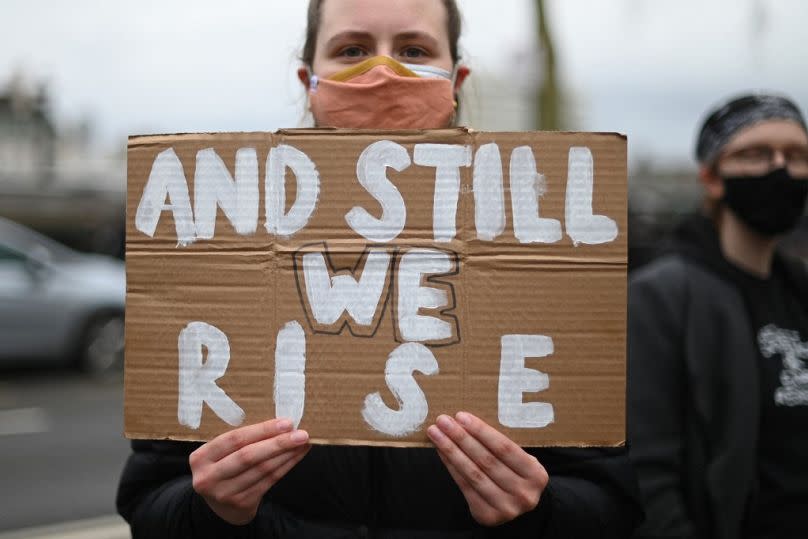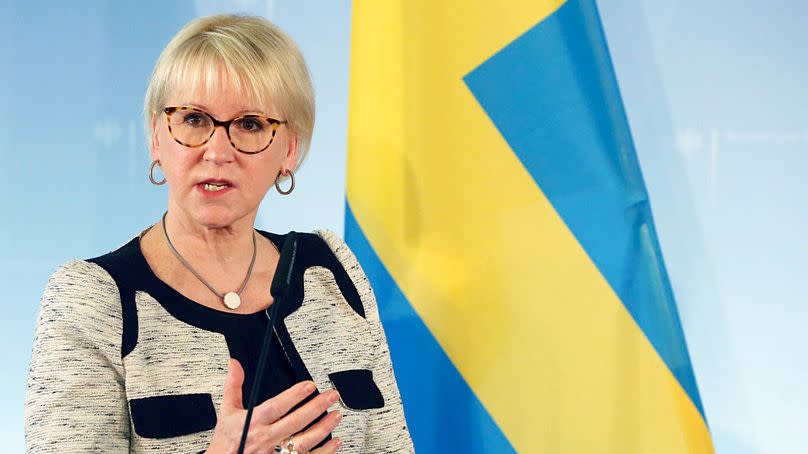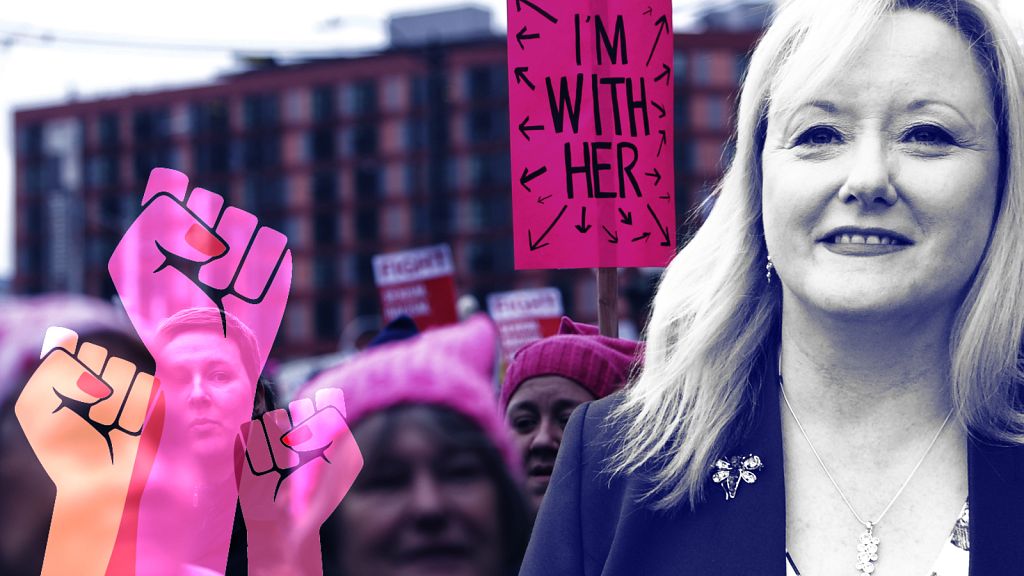Scotland has become the latest country to adopt a feminist approach to its foreign policy.
International Development Minister Christina McKelvie made the announcement at a forum on women’s leadership in Iceland on Monday, and although Scotland has a limited foreign policy scope under its devolved agreement with London, McKelvie says it was important to refocus efforts.
“We want a feminist policy that questions colonialism, that’s actively anti-racist, that targets patriarchy and in some ways the capitalist, imperialist, male-dominated power structures,” McKelvie told Euronews.
“One of the things we want to prioritise is peace and how peace can protect the rights of women and marginalised groups,” she added.
Scotland becomes the first part of the UK to take a feminist approach to international relations, helping women and girls in less developed countries.
Several other European countries have adopted similar policies over the last decade with variable long-term follow-through and mixed results, leading many to question whether adopting such policies is merely symbolic or has real transformative potential.
So can a feminist foreign policy be a game changer?


‘Is this Wokeness gone mad?’
What was born as a way to challenge the status quo of international politics is seen by some as a necessary reframing of a staid foreign policy narrative, while others are sceptical.
In the absence of a concrete definition, each state has its own interpretation of what exactly a ‘feminist foreign policy’ entails.
The term came into use first in Sweden in the midst of Russia’s annexation of Crimea and an incursion into Swedish territorial waters. In this context, the international media joked: could Vladimir Putin be intimidated by Swedish feminism?
As the feminist movement has gained momentum, and since Sweden took the first step, other countries have followed suit, including Canada, Mexico, France, Luxembourg, Spain, Libya, Germany, the Netherlands and Chile.
“There’s been a lot of development work on what works and what doesn’t and how other countries have approached this. We’ve learned a lot from countries like Spain about how to implement this policy,” says McKelvie.
“When we announced it, we had the usual ‘this is Wokeness gone mad’ or ‘what does it mean? It’s all about being fluffy and cuddly’. Patriarchal organisations will laugh, but we know we are committed to making a difference for people around the world,” she added.
Scotland is still debating the total amount of money it will allocate to the policy, but the minister has already said she plans to “spend every penny in the budget”.
“It’s hard to put a price tag on what we want to do,” McKelvie added.


The cautionary tale of Sweden
When Swednen’s then-Foreign Minister Margot Wallström announced in 2014 that her country would be the first in the world to adopt a feminist foreign policy, the proposal was greeted with no small amount of amusement.
The idea was to make gender equality a priority in Stockholm’s relations with other countries.
Although the Nordic nation has recently, officially, scrapped the policy, other foreign ministers both inside and outside the European Union took notice at the time and embarked on their own journeys to a more feminist foreign policy stance.
The country that pioneered feminist foreign policy was also the first to repeal it.
After eight years in force, a conservative government came to power in last year’s elections, putting an end to feminist diplomacy.
Sweden’s foreign minister, the conservative Tobias Billström, argued that it had become a ‘counterproductive label’.
“Their reasoning was that such a label of feminist foreign policy obscures the policy behind it, and that they were still somehow focused on prioritising gender equality, but they felt that the feminist label was just an empty label,” Jennifer Bergman from the Swedish Institute of International Affairs, told Euronews.
While organisations such as Human Rights Watch criticised the country’s move, there was much internal disagreement over the policy’s performance.
The most notorious incident involved a diplomatic dispute between former FM Wallström, and Saudi Arabia, after she was sharply critical of repression in the Middle Eastern theocracy.
Speaking in the Swedish parliament, she described the 1,000 lashes to which the blogger and human rights activist Raif Badawi had been sentenced as a “medieval punishment”.
Saudi Arabia reacted furiously to this first diplomatic strike, blocking a speech Wallström was due to give to Arab leaders on women’s rights and temporarily severing ties with Sweden.
The row did not stop there.
In retaliation, Sweden stopped selling arms to Saudi Arabia, which was its main customer, and cancelled a multi-billion dollar deal that was to be implemented in the future.


Balancing feminist ambitions with national interests?
Although this incident was never officially cited as the reason for the country’s reversal of its feminist foreign policy stance, the Swedish arms industry previously had a turnover of more than €1.2 billion in sales to the Arab country.
“Even though Sweden has a long tradition in politics of promoting gender equality, the parties on the left that have implemented these policies have been more in favour of using the feminist label, whereas the parties on the right tend to be more against it,” says analyst Jennifer Bergman.
Another challenge for Swedish feminist politics was the balance between national interests and the lofty ambitions of its feminist diplomacy, according to Inés Arco Escriche, a researcher at the Barcelona Centre for International Affairs.
Sweden tightened in 2016 its asylum and border control policies, making family reunification almost impossible.
While the Ministry of Foreign Affairs claimed in its action plan that feminist diplomacy aimed to protect and empower women in other countries, including refugees and migrants, the tightening of migration policies left thousands of women in refugee camps or living in war-torn countries.







